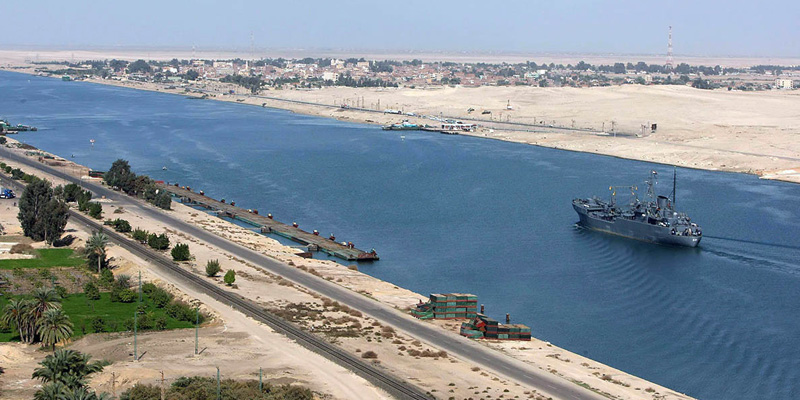Egypt’s parliament speaker on Tuesday defended a draft law submitted by the government seeking to allow the Suez Canal’s authority to form and manage a 100-billion-Egyptian-pound private fund.
The draft law, which failed to get the necessary support at a plenary session on Monday, sought to amend the law pertaining to the Suez Canal.
The change would allowing its authority — whether independently or in partnership with third parties — to use the fund to establish companies and invest in securities and private ventures.
The fund, if approved, would have a capacity of 100 billion Egyptian pounds and would start its operations with a 10-billion-pound transfer from the canal’s coffers.
Additionally, the law would allow the fund to independently sell, rent or transfer its assets as it sees fit.
The draft law was met with widespread criticism from MPs and commentators on social media who denounced the privatisation, at least in part, of economic activities relating to the canal.
Speaker Hanafi El Gebaly, a member of the pro-government majority Mostaqbal Watan party, said in televised address that after seeing false news being circulated about the sale of the canal to private entities, he was “compelled to clarify the draft law’s details”.
“It does not contain any provisions that touch the Suez Canal in any way, as it is considered public property and it cannot be bought and sold. It is constitutionally mandated for the state to protect and preserve the canal,” Mr El Gebaly said on Tuesday.
The chairman of the waterway’s authority, Admiral Osama Rabie, who spoke in parliament on Monday to outline the benefits of forming the fund for the country’s economy, said it would “accomplish long-term sustainable economic development for the canal and its operations and better equip it to deal with crises”.
The canal is one of Egypt’s most important sources of foreign currency, bringing in almost $8 billion in 2022.
On Tuesday, Mr El Gebaly stressed that the fund would only be allowed to buy, sell and rent with its own holdings, which will remain separate from those of the canal.
“[It is] a natural financial tool which is in line with the nature of private funds as a tool of funding and investment, and it does not directly or indirectly affect the canal itself or its operations,” he said.
On Monday, Admiral Rabie reiterated the same sentiments during a televised phone-in. He said that generating more revenue would better equip the authority to deal with incidents like the running aground of the Ever Given, the Panama-registered cargo ship that blocked the waterway for six days in March last year.
However, during Monday’s session, the draft law was met with questions about financial transparency and privatisation, with several MPs rejecting it outright.
“Establishing a fund for the Suez Canal Authority is tantamount to emptying Egypt of its money, and converting public money into private money. This project represents an imminent danger to the Egyptian state,” said MP Mahmoud Dawood during Monday’s plenary session.
Mr Dawood was the representative of the country’s New Wafd Party, a pro-government faction that is one of the country’s oldest.
“The lack of unity in the national budget is one of the main defects of the state’s general financial policy,” said MP Ehab Mansour, a representative of the liberal Egyptian Social Democratic Party, on Monday.
Mr Mansour said Egypt was suffering as a result of the 7,000 private funds and accounts in the country.
“Their profits last year alone were about 36 billion pounds, of which only 3 billion pounds were deducted to support the national budget,” he said.
In 2015, Egypt’s government said it would be moving to integrate the majority of the country’s private investment funds into the state’s coffers in a bid to reduce corruption and boost transparency.
The Suez Canal is an important symbol of Egyptian patriotism after it was nationalised by former president Gamal Abdel Nasser. He founded the canal’s authority in 1956 as the first Egyptian entity to fully own and operate the waterway and its operations since its inauguration in 1869.
Mr Nasser famously said in a July 26, 1953 speech that 120,000 Egyptians had died digging up the canal. Later estimates claimed the number was much less, nonetheless, this contributed to making the canal an almost mythological symbol of Egypt’s victory against western colonialism.
Source: Hellenic Shipping News





